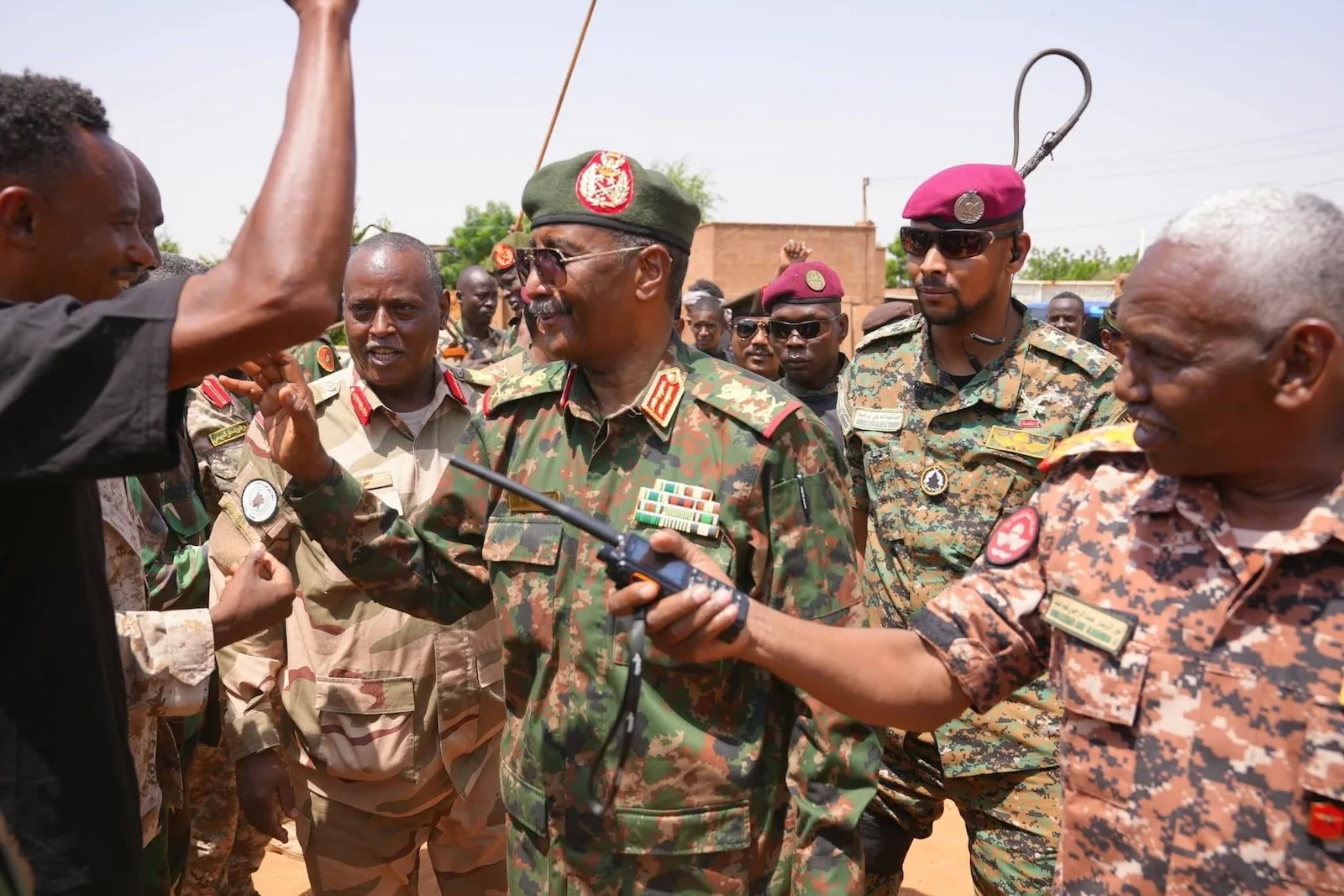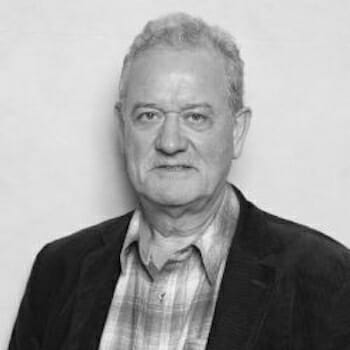
Burhan’s Hard No: How Islamist Patronage Blocks Sudan’s Peace
It was predictable—almost scripted. Six days after Washington and its regional partners unveiled their latest plan to halt Sudan’s brutal civil war, Gen. Abdel Fattah al-Burhan made his position plain in Doha: thanks, but no thanks. Meeting Sudanese expatriates, intellectuals, media figures, and business leaders at the embassy, the commander of the Sudanese Armed Forces (SAF) wrapped himself in the language of sovereignty and institutional preservation, signaling openness to “any efforts” to stop the war—so long as they left the essentials of power untouched.
Off script, he was blunter. The Quad’s communiquê, issued by the United States with Egypt, Saudi Arabia, and the United Arab Emirates, “does not concern us,” he said. Sudan, he insisted, would accept no agenda imposed from abroad. Nor would the army pause its campaign: “We will not lay down our arms until we break the siege of El-Fasher, Zalingei, Babanusa, and every inch desecrated by the rebellion,” Burhan declared. The message was unmistakable: the SAF would fight until its adversaries capitulated or were crushed.
That stance shreds the core of the proposed roadmap. There would be no three-month humanitarian truce, no permanent cease-fire, and no nine months of negotiations over a transition to civilian rule. Behind the refusal sits the fourth plank of the plan—the one Burhan cannot abide: excluding the Muslim Brotherhood and allied violent extremists from Sudan’s transition. To accept that would be to saw off the very branch on which his Islamist political and armed backers are perched.
Reactions were divided along familiar lines. Islamist factions fumed. The National Forces Coordination accused the Quartet of “unacceptable bias” and trampling Sudan’s right to self-determination. Ali Karti’s Broad Islamist Current Alliance denounced “blatant interference in Sudan’s internal affairs.” At the same time, the National Congress Party—the old vehicle of Omar al-Bashir—spread blame everywhere but the SAF, insisting the arsonists were unfit to play firefighters.
Others welcomed the initiative, if warily. The Rapid Support Forces (RSF) endorsed a “comprehensive peaceful process” aimed at stopping the war and addressing the country’s recurring crises at their roots. Former Prime Minister Abdalla Hamdok’s Civil Democratic Alliance, or Somoud, offered full support. Umma Party president Mubarak al-Fadl called the plan “responsible and balanced.” Taqqadum, Emergency Lawyers, and a constellation of civil-society groups lined up behind it as the least bad path toward relief.
No one is naive about the road ahead. As the regional outlet The Horn recently noted, past international efforts to end Sudan’s internal wars do not inspire great confidence. Too often, diplomats sidelined civilians, mistook choreography for enforcement, and allowed momentum to dissipate. Disarmament lagged; reconstruction pledges wilted; militias rebranded instead of disbanding. The result was a cycle of ceasefires without peace and negotiations without transition.
This time, however, the central obstacle is no longer obscured by process. For the Quad, a hard-won consensus has taken hold: the decisive impediment to any sustainable settlement is the ideological and organizational grip of Islamism over Burhan and key sectors of the SAF. In that analysis, Sudan risks becoming a launchpad for a renewed wave of Islamist-inspired violent extremism—with outside patrons ready to exploit the vacuum. So long as that ecosystem endures, cease-fires are tactics, not steps toward peace; “transitions” are interludes, not pathways to civilian rule.
Breaking that grip is therefore not an optional clause but the precondition for everything else: for humanitarian access that lasts longer than a press conference; for a cease-fire that does not unravel at the first provocation; for negotiations that lead to a genuine transfer of power rather than a reshuffle of uniforms. It means constructing a settlement in which the SAF is guaranteed a dignified place within a national defense architecture—but not a veto over governance. It means interdicting weapons flows that fuel war economies and empower spoilers. And it means backing any deal with serious money and serious monitoring: credible security guarantees, external oversight with teeth, and reconstruction packages large enough to change political incentives, not merely paper over destruction.
None of this is easy. The RSF’s record of atrocities and predation—like the SAF’s—demands accountability alongside inclusion in a peace framework; otherwise, the settlement will implode on contact with reality. Civilian actors, sidelined so often before, must be more than photo-op props. And the international coalition pushing this track must stay aligned long enough to enforce it, resisting the familiar drift toward lowest-common-denominator diplomacy.
But the choice is stark. A “peace process” that accommodates Islamist factions will reanimate the pathologies that detonated Sudan’s transition the last time around. A process that conditions political participation on renouncing violent extremism—and that constrains spoilers with enforcement, not adjectives—offers at least a plausible route out of catastrophe. The Quad has identified the problem with unusual clarity. Whether it can sustain the unity, resources, and political will to solve it will determine not just the fate of a diplomatic document, but whether Sudan’s civilians see relief, representation, and the beginnings of a state that serves them rather than preys upon them.
If the goal is to stop the dying and build a republic, not merely a reprieve, the sequence is clear: break the Islamist stranglehold, lock in military guarantees that protect a civilian-led transition, cut off the guns, and fund the reconstruction that makes peace pay. Only then does “transition” mean something more than a pause between wars.
